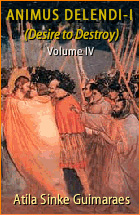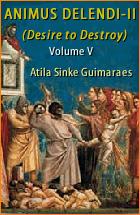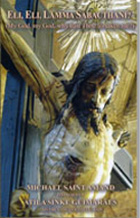NEWS: January 14, 2025
 |
 |
 |
 |
 |
 |
 |
Bird’s Eye View of the News

THE EMPTY & MALICIOUS ACCUSATIONS OF BISHOP WILLIAMSON - PART II
In the last article I looked at two accusations against Prof. Plinio Corrêa de Oliveira made in a talk by Bishop Williamson that was recently posted in Brazil. Today I will refute the next two attacks.
3. The implicit heresy of Laicism
Next, we have the Prelate accusing the TFP of being guilty of the heresy of Laicism. The listener of his audio is led to believe that the alleged fact of preventing young men from entering the seminary would be a known heresy. So now, the accusation goes to a higher level: It becomes a heresy. Bishop Williamson does not refrain from affirming to whosever wants to hear that the TFP is heretical.
Let me analyze first the content of the accusation and then its form.
The error of Laicism or Secularism condemned by Popes Pius IX, Leo XIII and Pius XI regards the separation of the State from the Church and its consequences – civil education, civil marriage, civil birth and death registers, equality of all religions before the State etc.
/bev302_Eta.jpg) The Dictionnaire de Théologie Catholique synthetically defines Laicism as “to remove God from the institutions, laws and life, and to found an independent morals for an autonomous conscience.” (Tables, col 2858)
The Dictionnaire de Théologie Catholique synthetically defines Laicism as “to remove God from the institutions, laws and life, and to found an independent morals for an autonomous conscience.” (Tables, col 2858)
Pius XI in Quas primas condemns this Laicism or Secularism:
“This evil spirit, as you are well aware, Venerable Brethren, has not come into being in one day; it has long lurked beneath the surface. The empire of Christ over all nations was rejected. The right which the Church has from Christ Himself to teach mankind, to make laws, to govern peoples in all that pertains to their eternal salvation, that right was denied. Then gradually the religion of Christ came to be likened to false religions and to be placed ignominiously on the same level with them. It was then put under the power of the State and tolerated more or less at the whim of princes and rulers.” § 24
We see, therefore, that regarding the content of Laicism, it cannot be applied to the TFP because this association has always combated privately and publicly this revolutionary doctrine of removing the State from God, as it becomes obvious for anyone who is in the least bit familiar with its works.
As far as the form of the accusation is concerned, the practice of the Church is to define a heresy as a doctrine that diverges from the Catholic Faith in one or various points, and is professed by a baptized person who previously was within the bosom of the Church. So, for example: Arianism, Monophisitism, Monoenergism, Pelagianism, Protestantism, Jansenism, Modernism etc.
/bev302_Rel.jpg) When a doctrine is not an error coming from a wrong interpretation of the Catholic Faith, the Church condemns it as an error, a school of thought, a philosophy or some other such name without using the word heresy. It is the case of the errors coming from temporal enemies of the Catholic Church such as Freemasonry. Their errors are designated as Rationalism, the Enlightenment, Communism, Socialism, Nazism, Fascism etc.
When a doctrine is not an error coming from a wrong interpretation of the Catholic Faith, the Church condemns it as an error, a school of thought, a philosophy or some other such name without using the word heresy. It is the case of the errors coming from temporal enemies of the Catholic Church such as Freemasonry. Their errors are designated as Rationalism, the Enlightenment, Communism, Socialism, Nazism, Fascism etc.
This is also the case of Laicism or Secularism, which was a movement born from the Enlightenment and applied systematically after the French Revolution against the Catholic Church by her enemies. Laicism was characterized, as I have already said, by the separation of the State from the Church, and also by the State persecution of the Church. Such persecutions implied the closing of religious institutions and deportation of their clergy; hence also the name anti-clericalism is used as synonymous with Laicism.
Once the terminology is set, it is not difficult to reach the conclusion: The accusation of Bishop Williamson stating that “Laicism is the implicit heresy of the TFP,” is not appropriate – neither regarding the content of Laicism, that is, the TFP in fact promotes the opposite of Laicism, nor regarding the form habitually used by the Catholic Church to refer to this error: that is, Laicism is not referred to as a heresy.
So, we see that the Prelate, eager to detract the TFP, forced the meaning of the word heresy in order to slander the organization and its founder, Prof. Plinio Corrêa de Oliveira.
A Catholic cannot avoid qualifying this accusation as intellectually incompetent and morally perfidious.
4. Plinio rebelled against the intellectual direction of Bishop Mayer
According to Bishop Williamson, Bishop Mayer directed Prof. Plinio during his whole life and, at a certain moment, the latter rebelled against this influence and broke with him. As proof to demonstrate the great intellectual capacity of Bishop Mayer to exert such guidance over Prof. Plinio, Bishop Williamson extensively refers to the work Pastoral Letter on the Errors of the Modern Apostolate as Bishop Mayer’s masterpiece.
Let me make public some historical data that are necessary to make truth prevail.
A. Pastoral Letter on the Problems of Modern Apostolate
The relations among Prof. Plinio, Bishop Mayer and Archbishop Sigaud dated from 1933 when the two ecclesiastics were young priests and professors at the São Paulo seminary. Prof. Plinio was then designated by Card. Duarte Leopoldo e Silva, Archbishop of São Paulo, as the director of the Archdiocese’s weekly O Legionário. Fr. Mayer was the religious assistant of the paper. The collaboration was very close among the three, and they agreed to defend the ideals of the Counter-Revolution and to consult one another in their initiatives.
/bev302_P1.jpg) Although very capable as a professor and as administrator, Bishop Mayer did not have a marked talent to write. This is why his main work, the Pastoral Letter on the Problems of the Modern Apostolate was not written by him, but by Prof. Plinio. Since the practice of Prelates having ghost-writers is not rare in the Church, Bishop Mayer did not have any special problems with accepting this fact. The only condition he placed was that he would write something in that work in order to not lie.
Although very capable as a professor and as administrator, Bishop Mayer did not have a marked talent to write. This is why his main work, the Pastoral Letter on the Problems of the Modern Apostolate was not written by him, but by Prof. Plinio. Since the practice of Prelates having ghost-writers is not rare in the Church, Bishop Mayer did not have any special problems with accepting this fact. The only condition he placed was that he would write something in that work in order to not lie.
So, he and Prof. Plinio agreed that the latter would dictate parts of it in French to Bishop Mayer so he could say with peace of conscience that he wrote it. Every older member of the TFP knows of this fact and the origin of this book. For operative reasons, I had at hand the original manuscripts of this work and can attest before God that this is the truth. I am making this public not to diminish the Prelate, but to make the truth prevail, since this work is now being used as an argument against Prof. Plinio.
It is ironic that to prove that Bishop Mayer was a great mind who had the capacity to influence Prof. Plinio, Bishop Williamson exalted the merits of that particular work, without realizing that he was indirectly giving evidence of the opposite of what he wanted to prove.
By the way, two other famous pastoral letters by Bishop Mayer that have had a great influence and increased his fame were a Pastoral Letter against Divorce and a Pastoral Letter on the Cursillos de Cristiandad. The first was written by Dr. Arnaldo Xavier da SIlveira, and the second by a commission of the TFP.
Also in the book Agrarian Reform, A Question of Conscience, signed by Arch. Sigaud and Bishop Mayer along with Prof. Plinio and the economist Luis Mendonça de Freitas, the intellectual contribution of the two Prelates was more symbolic than effective, which does not deprive them of the merit of making the very noble action of endorsing the intellectual work of those lay scholars.
Thus, what becomes evident is that the great works by Bishop Mayer that created for him the fame of being an intellectual were not written by him.
So, the main fact presented by Bishop Williamson to prove the enormous capacity of Bishop Mayer is not conclusive. Rather it proves the opposite, that is, that it was Prof. Plinio and other laymen who generously lent their intellectual talents to heighten the fame of that Prelate.
B. Constant respect & mutual consultations
In the normal life of the TFP when Bishop Mayer was present in São Paulo, Prof. Plinio would give primacy to him, placing him in an honorable seat, asking him to direct the meeting, insisting that he address some words to the audience. The doors to any meeting of the organization were always open to him, and he was always consulted when a doctrinal problem would appear.
Relevant events to prove the cordiality of the relations was the banquet the TFP offered to Bishop Mayer in May 1973 commemorating his silver jubilee (25 years as Bishop). Also in October 1977 the TFP made a solemn session in one of its seats with hundreds of members present to commemorate his golden jubilee (50 years of his priestly ordination). This session was followed by a banquet offered by the directors in one of the prestigious restaurants of São Paulo.
When Bishop Mayer was not present in São Paulo, Prof. Plinio would call him and Arch. Sigaud to consult on any public position of the TFP that involved Catholic doctrine.
Even after the rupture, when Bishop Mayer approached death, Prof. Plinio offered to go to Campos to visit him and reestablish relations. This offer would have been particularly difficult to accomplish since Prof. Plinio was in wheelchair and large airplanes could not land in the Campos airport, which would imply a trip from São Paulo to Rio by plane, followed by a trip by car from Rio to Campos (a 4 hour drive). Bishop Mayer did not accept the offer.
So, we see that the accusation that Prof. Plinio broke with Bishop Mayer for rejecting his scholarly influence is intellectually completely unfounded and is morally irrelevant.
Continued

In the last article I looked at two accusations against Prof. Plinio Corrêa de Oliveira made in a talk by Bishop Williamson that was recently posted in Brazil. Today I will refute the next two attacks.
3. The implicit heresy of Laicism
Next, we have the Prelate accusing the TFP of being guilty of the heresy of Laicism. The listener of his audio is led to believe that the alleged fact of preventing young men from entering the seminary would be a known heresy. So now, the accusation goes to a higher level: It becomes a heresy. Bishop Williamson does not refrain from affirming to whosever wants to hear that the TFP is heretical.
Let me analyze first the content of the accusation and then its form.
The error of Laicism or Secularism condemned by Popes Pius IX, Leo XIII and Pius XI regards the separation of the State from the Church and its consequences – civil education, civil marriage, civil birth and death registers, equality of all religions before the State etc.
/bev302_Eta.jpg)
Laicism refers to the State separating itself
from God & His Church
Pius XI in Quas primas condemns this Laicism or Secularism:
“This evil spirit, as you are well aware, Venerable Brethren, has not come into being in one day; it has long lurked beneath the surface. The empire of Christ over all nations was rejected. The right which the Church has from Christ Himself to teach mankind, to make laws, to govern peoples in all that pertains to their eternal salvation, that right was denied. Then gradually the religion of Christ came to be likened to false religions and to be placed ignominiously on the same level with them. It was then put under the power of the State and tolerated more or less at the whim of princes and rulers.” § 24
We see, therefore, that regarding the content of Laicism, it cannot be applied to the TFP because this association has always combated privately and publicly this revolutionary doctrine of removing the State from God, as it becomes obvious for anyone who is in the least bit familiar with its works.
As far as the form of the accusation is concerned, the practice of the Church is to define a heresy as a doctrine that diverges from the Catholic Faith in one or various points, and is professed by a baptized person who previously was within the bosom of the Church. So, for example: Arianism, Monophisitism, Monoenergism, Pelagianism, Protestantism, Jansenism, Modernism etc.
/bev302_Rel.jpg)
Religion defeating heresy & hatred
This is also the case of Laicism or Secularism, which was a movement born from the Enlightenment and applied systematically after the French Revolution against the Catholic Church by her enemies. Laicism was characterized, as I have already said, by the separation of the State from the Church, and also by the State persecution of the Church. Such persecutions implied the closing of religious institutions and deportation of their clergy; hence also the name anti-clericalism is used as synonymous with Laicism.
Once the terminology is set, it is not difficult to reach the conclusion: The accusation of Bishop Williamson stating that “Laicism is the implicit heresy of the TFP,” is not appropriate – neither regarding the content of Laicism, that is, the TFP in fact promotes the opposite of Laicism, nor regarding the form habitually used by the Catholic Church to refer to this error: that is, Laicism is not referred to as a heresy.
So, we see that the Prelate, eager to detract the TFP, forced the meaning of the word heresy in order to slander the organization and its founder, Prof. Plinio Corrêa de Oliveira.
A Catholic cannot avoid qualifying this accusation as intellectually incompetent and morally perfidious.
4. Plinio rebelled against the intellectual direction of Bishop Mayer
According to Bishop Williamson, Bishop Mayer directed Prof. Plinio during his whole life and, at a certain moment, the latter rebelled against this influence and broke with him. As proof to demonstrate the great intellectual capacity of Bishop Mayer to exert such guidance over Prof. Plinio, Bishop Williamson extensively refers to the work Pastoral Letter on the Errors of the Modern Apostolate as Bishop Mayer’s masterpiece.
Let me make public some historical data that are necessary to make truth prevail.
A. Pastoral Letter on the Problems of Modern Apostolate
The relations among Prof. Plinio, Bishop Mayer and Archbishop Sigaud dated from 1933 when the two ecclesiastics were young priests and professors at the São Paulo seminary. Prof. Plinio was then designated by Card. Duarte Leopoldo e Silva, Archbishop of São Paulo, as the director of the Archdiocese’s weekly O Legionário. Fr. Mayer was the religious assistant of the paper. The collaboration was very close among the three, and they agreed to defend the ideals of the Counter-Revolution and to consult one another in their initiatives.
/bev302_P1.jpg)
A pastoral letter written by a lay author
So, he and Prof. Plinio agreed that the latter would dictate parts of it in French to Bishop Mayer so he could say with peace of conscience that he wrote it. Every older member of the TFP knows of this fact and the origin of this book. For operative reasons, I had at hand the original manuscripts of this work and can attest before God that this is the truth. I am making this public not to diminish the Prelate, but to make the truth prevail, since this work is now being used as an argument against Prof. Plinio.
It is ironic that to prove that Bishop Mayer was a great mind who had the capacity to influence Prof. Plinio, Bishop Williamson exalted the merits of that particular work, without realizing that he was indirectly giving evidence of the opposite of what he wanted to prove.
By the way, two other famous pastoral letters by Bishop Mayer that have had a great influence and increased his fame were a Pastoral Letter against Divorce and a Pastoral Letter on the Cursillos de Cristiandad. The first was written by Dr. Arnaldo Xavier da SIlveira, and the second by a commission of the TFP.
Also in the book Agrarian Reform, A Question of Conscience, signed by Arch. Sigaud and Bishop Mayer along with Prof. Plinio and the economist Luis Mendonça de Freitas, the intellectual contribution of the two Prelates was more symbolic than effective, which does not deprive them of the merit of making the very noble action of endorsing the intellectual work of those lay scholars.
Thus, what becomes evident is that the great works by Bishop Mayer that created for him the fame of being an intellectual were not written by him.
So, the main fact presented by Bishop Williamson to prove the enormous capacity of Bishop Mayer is not conclusive. Rather it proves the opposite, that is, that it was Prof. Plinio and other laymen who generously lent their intellectual talents to heighten the fame of that Prelate.
B. Constant respect & mutual consultations
In the normal life of the TFP when Bishop Mayer was present in São Paulo, Prof. Plinio would give primacy to him, placing him in an honorable seat, asking him to direct the meeting, insisting that he address some words to the audience. The doors to any meeting of the organization were always open to him, and he was always consulted when a doctrinal problem would appear.
Relevant events to prove the cordiality of the relations was the banquet the TFP offered to Bishop Mayer in May 1973 commemorating his silver jubilee (25 years as Bishop). Also in October 1977 the TFP made a solemn session in one of its seats with hundreds of members present to commemorate his golden jubilee (50 years of his priestly ordination). This session was followed by a banquet offered by the directors in one of the prestigious restaurants of São Paulo.
When Bishop Mayer was not present in São Paulo, Prof. Plinio would call him and Arch. Sigaud to consult on any public position of the TFP that involved Catholic doctrine.
Even after the rupture, when Bishop Mayer approached death, Prof. Plinio offered to go to Campos to visit him and reestablish relations. This offer would have been particularly difficult to accomplish since Prof. Plinio was in wheelchair and large airplanes could not land in the Campos airport, which would imply a trip from São Paulo to Rio by plane, followed by a trip by car from Rio to Campos (a 4 hour drive). Bishop Mayer did not accept the offer.
So, we see that the accusation that Prof. Plinio broke with Bishop Mayer for rejecting his scholarly influence is intellectually completely unfounded and is morally irrelevant.
Continued
















